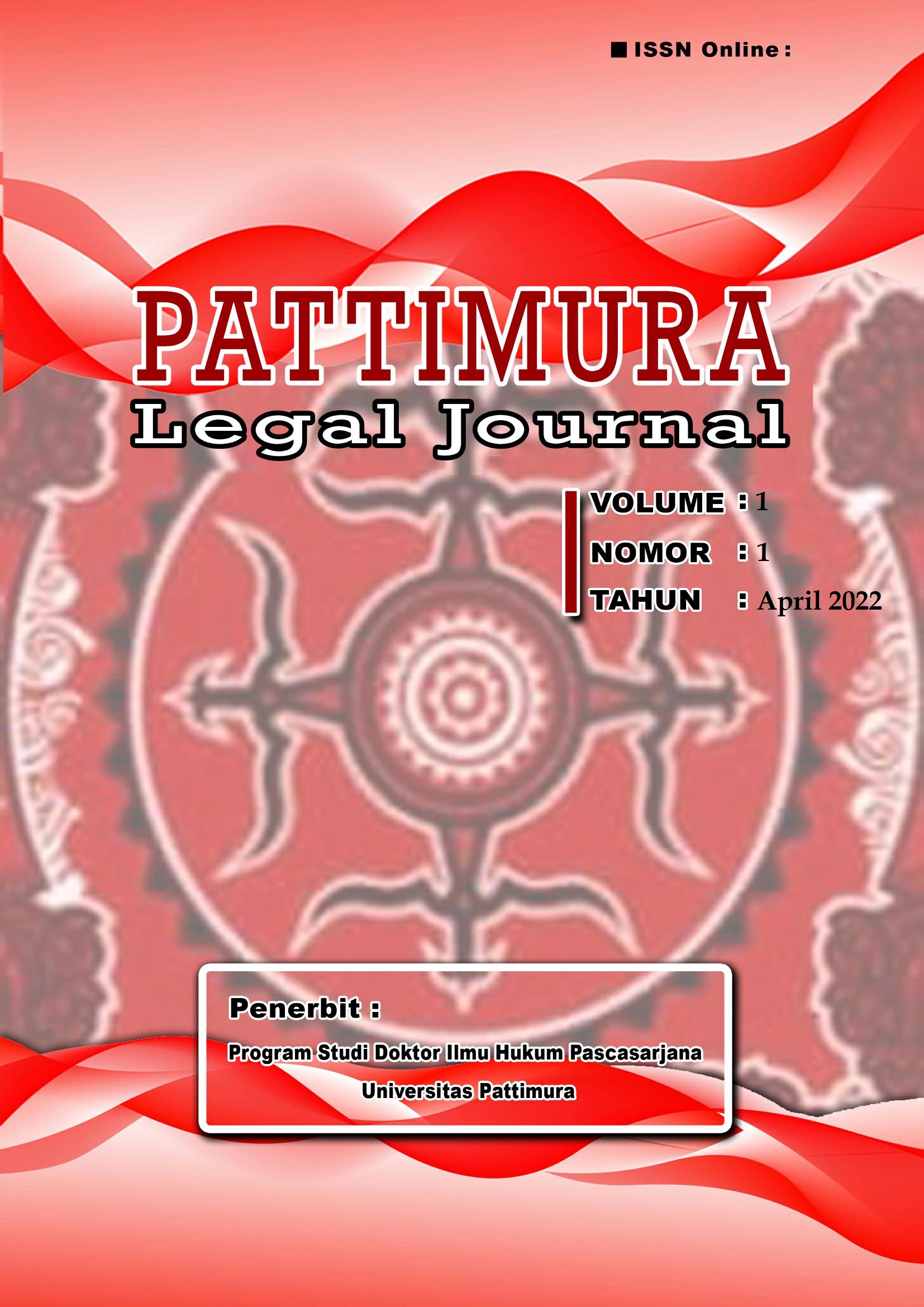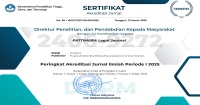Penegakan Hukum Di Wilayah Laut Pada Wilayah Perbatasan Negara
Abstract
Introduction: In the regulation of law enforcement, especially law enforcement in the sea area at the state border, almost all laws and regulations have accommodated the authority of each institution in carrying out law enforcement in the state border area, therefore it must be carried out properly so that it can realize security in the state border area.
Purposes of the Research: To analyze regulations related to law enforcement in the sea area in the border area of the State
Methods of the Research: The type of research used in this paper is in the form of normative juridical legal research, namely legal research regarding the regulation of authority and the implementation of the authority given by positive legal provisions factually in each particular legal event that occurs in the border area of the State, the research approach used is statutory approach, the sources of legal materials used are secondary and tertiary sources of legal materials and the collection of legal materials in this study is normative juridical.
Results Originality of the Research: The results of the study show that regulations related to law enforcement in the border areas of special states of the sea have overlapping arrangements. The government and local governments in the border areas in carrying out law enforcement in the state border areas in the sea area have not been maximal in law enforcement, partly because of the limited law enforcement infrastructure in the state border area with the area of the state border which is not directly proportional to the number of law enforcement personnel who is in the field. Law enforcement in national border areas as regulated in laws and regulations is not effective because there is no integrated synchronization and coordination in carrying out law enforcement in the country's border areas
Downloads
References
Jurnal
Handoko, Wignyo. “Kebijakan Pengawasan Sumber Daya Kelautan Dan Perikanan.” Jurnal IJIL, no. Edisi Khusus (2004): 109–10.
Numbery, Freddy. “Pengelolaan Pulau-Pulau Kecil Terluar.” Buletin Kelautan P3K Kementerian Kelautan Dan Perikanan 4, no. 1 (2006): 12–25.
Sondakh, Bernard Kent. “Pengamanan Wilayah Laut Indonesia.” Jurnal Hukum & Pembangunan 33, no. 1 (2003): 76–88.
Susetyorini, Peni. “Kebijakan Kelautan Indoensia Dalam Perspektif UNCLOS 198.” Masalah-Masalah Hukum 48, no. 2 (2019): 164–77.
Buku
Madu, Ludiro. Mengelola Perbatasan Indonesia Di Dunia Tanpa Batas: Isu, Permasalahan Dan Pilihan Kebijakan. Yogyakarta: Graha Ilmu, 2010.
Marzuki, Peter Mahmud. Penelitian Hukum,. Jakarta: Kencana, 2016.
Online/World Wide Web, Disertasi/Tesis/Skripsi, Dan Lain-Lain
Moeldoko. “Kompleksitas Pengelolaan Perbatasan: Tinjauan Dari Perspektif Kebijakan Pengelolaan Perbatasan Indonesia.” Makalah Seminar “Pengelolaan Sumber Daya Alam Dalam Perspektif Ketahanan Nasional.” Pontianak, 2014.
Patnistik, Egidius. “22 Nelayan Indonesia Ditangkap Di Australia.” Kompas.com, 2013. https://tekno.kompas.com/read/2013/10/17/1308224/22.nelayan.indonesia.ditangkap.di.australia.
Retraubun, Alex S W. “Isu Pulau-Pulau Kecil Sebagai Dasar-Pijak Kebijakan Pembangunan Daerah Kepulauan.” Pidato Pengukuhan Guru Besar Universitas Pattimura. Ambon, 2007.
Copyright (c) 2022 Adolof Bormasa, John Dirk Pasalbessy, Erwin Ubwarin (Author)

This work is licensed under a Creative Commons Attribution-NonCommercial 4.0 International License.
Authors who publish their manuscripts in this Journal agree to the following conditions:
- The copyright in each article belongs to the author, as well as the right to patent.
- Authors are able to enter into separate, additional contractual arrangements for the non-exclusive distribution of the journal's published version of the work (e.g., post it to an institutional repository or publish it in a book), with an acknowledgment of its initial publication in this journal.
- Authors are permitted and encouraged to post their work online (e.g., in institutional repositories or on their website) prior to and during the submission process, as it can lead to productive exchanges, as well as earlier and greater citation of published work.
- Authors have the right to self-archiving of the article (Author Self-Archiving Policy)






















